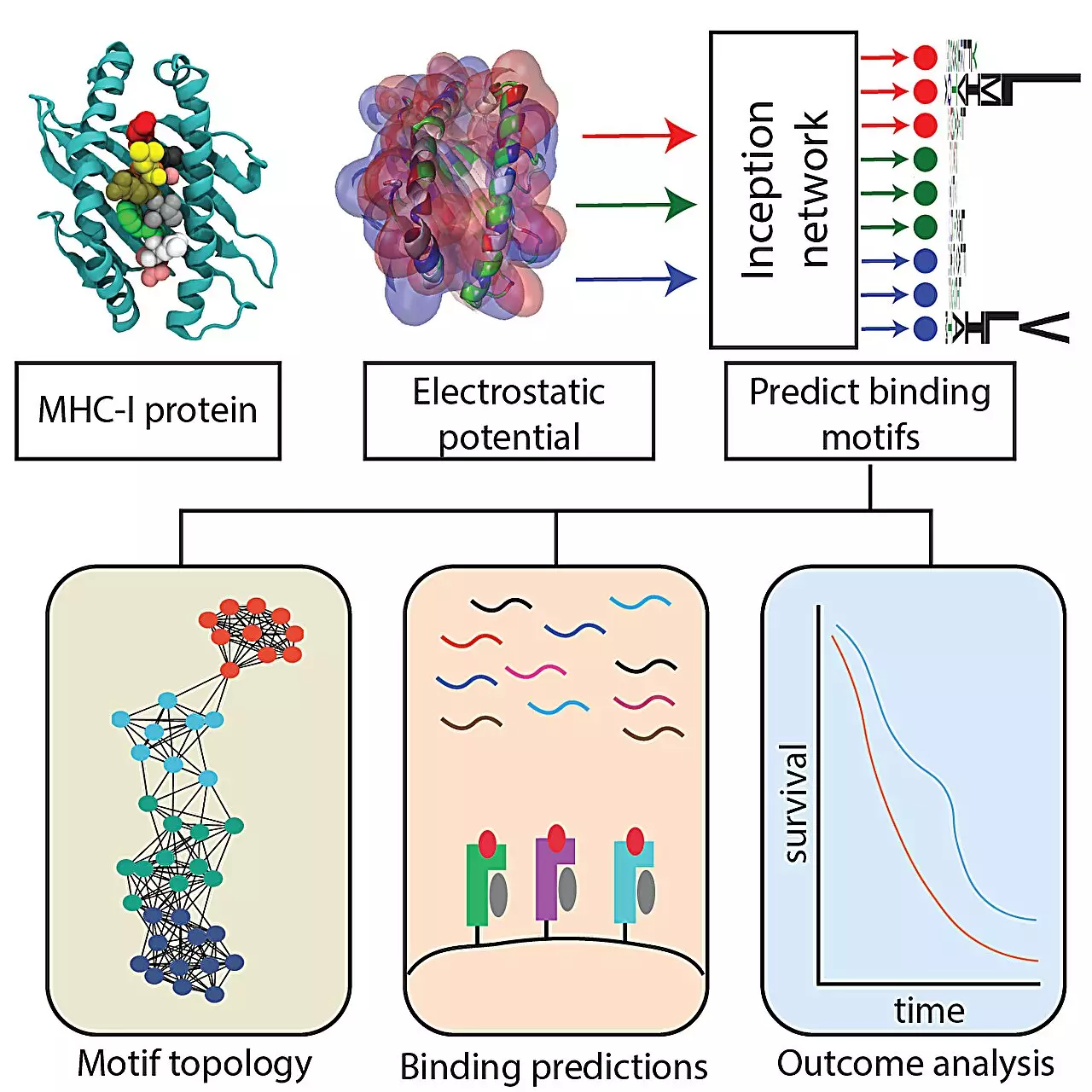In the battle against cancer, researchers worldwide are constantly seeking new ways to understand the complexities of the human immune system. A team of scientists from Arizona State University has taken a groundbreaking step by developing an AI-based learning tool named HLA Inception. This innovative tool has provided fresh insights into how an individual’s immune system responds to foreign cells. The study, which was published in Cell Systems, sheds light on the predictive capabilities of this tool in determining immune responses against threatening viruses and cancers within seconds.
The focus of the research revolves around major histocompatibility complex-1(MHC-1) proteins, which play a crucial role in the immune system’s defense mechanisms. These proteins act as sentinels on the surface of cells, detecting foreign invaders and presenting them to the immune system for attack. Understanding the specific preferences of each person’s MHC-1 proteins in interacting with protein fragments is essential for unraveling the mysteries of the immune system. The ability to predict which peptides will bind effectively to these proteins is key to developing advanced cancer vaccines and personalized treatments.
Powered by AI and machine learning, the HLA Inception tool utilizes electrostatic signatures on MHC-1 proteins to categorize them into 11 distinct types. This classification enables researchers to predict whether the peptides monitored by MHC-1 are self or foreign invaders. The study revealed that patients with a diverse range of MHC-1 proteins had a higher chance of surviving certain cancer therapies. This highlights the potential of AI in revolutionizing healthcare by providing personalized treatments and improving patient outcomes.
The researchers have made HLA-Inception available for academic use, fostering collaboration and innovation in the field of immunotherapy. By leveraging advanced AI tools, scientists aim to develop better cancer therapeutic vaccines and immunotherapies tailored to individual patients. This approach marks a significant leap towards precision medicine, where next-generation immunotherapies will be highly precise and individualized based on an individual’s MHC molecules. The implications of this research extend far beyond academia, promising advancements in healthcare and personalized treatments for cancer patients.
The integration of AI and machine learning in cancer research has the potential to transform the way we understand and treat the disease. The development of tools like HLA Inception opens up new possibilities for personalized cancer medicine, offering hope for improved patient outcomes and tailored treatments. As researchers continue to push the boundaries of scientific discovery, the future of cancer treatment looks brighter than ever before.

